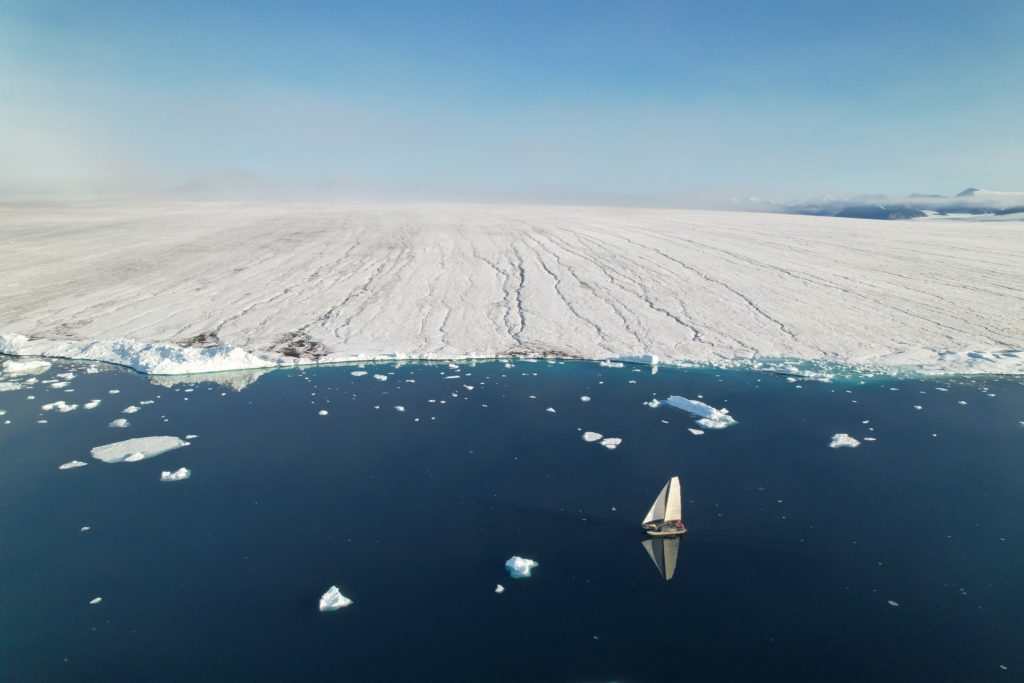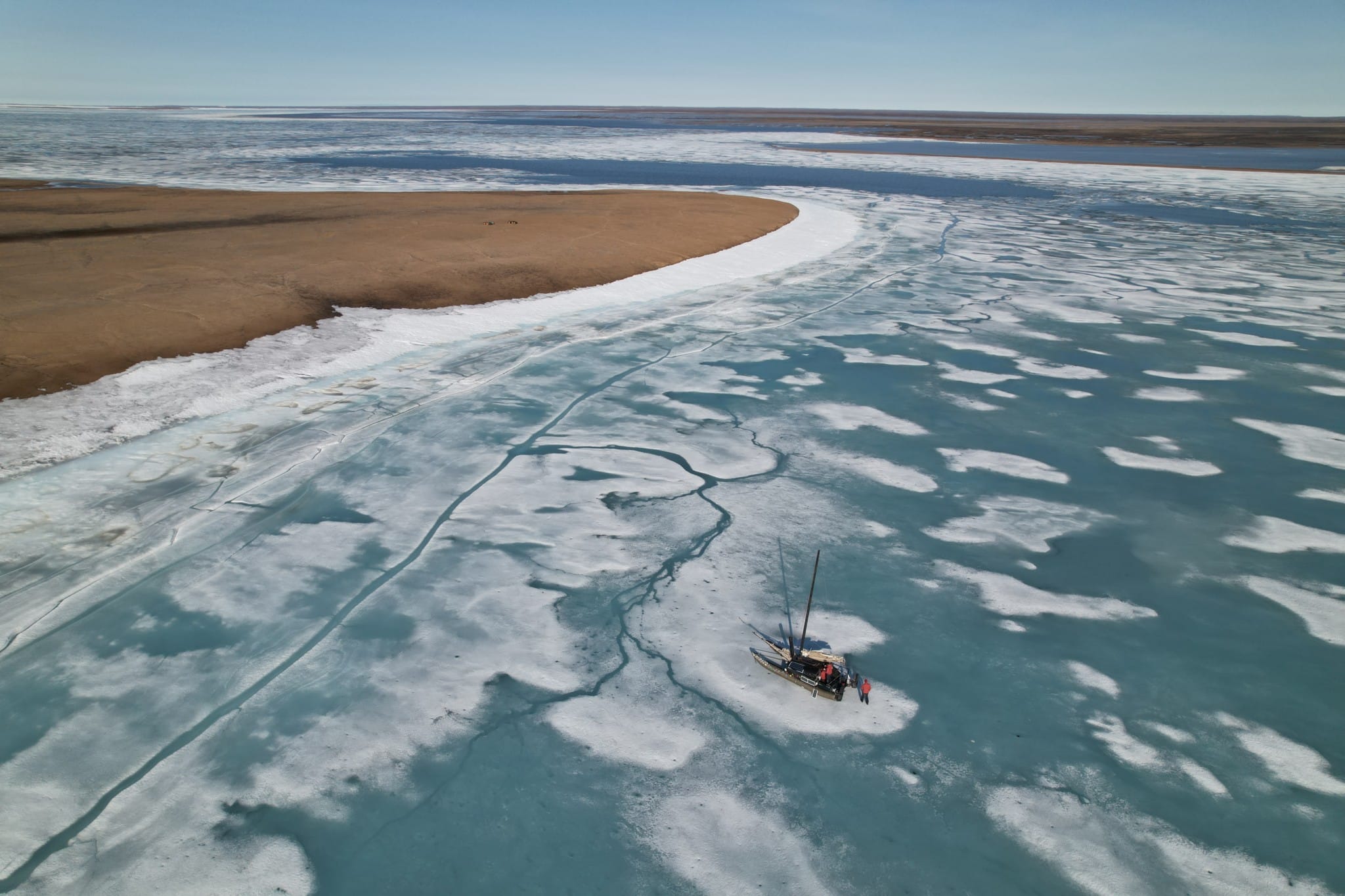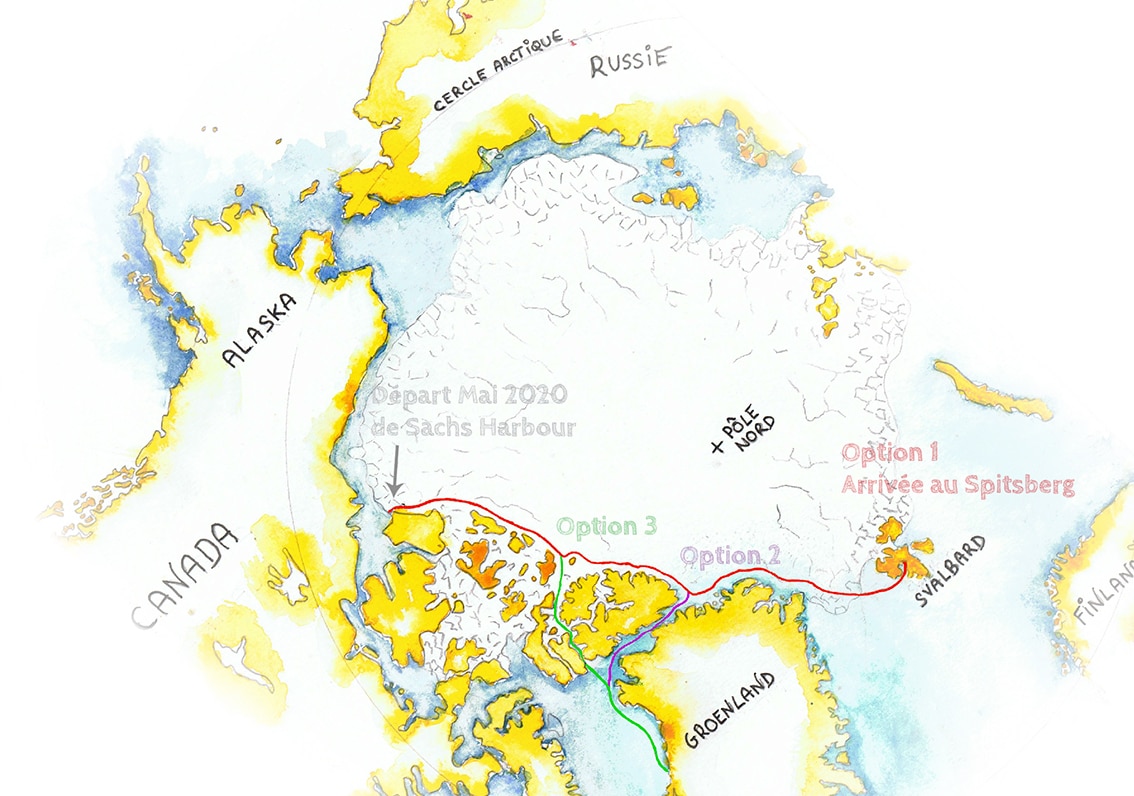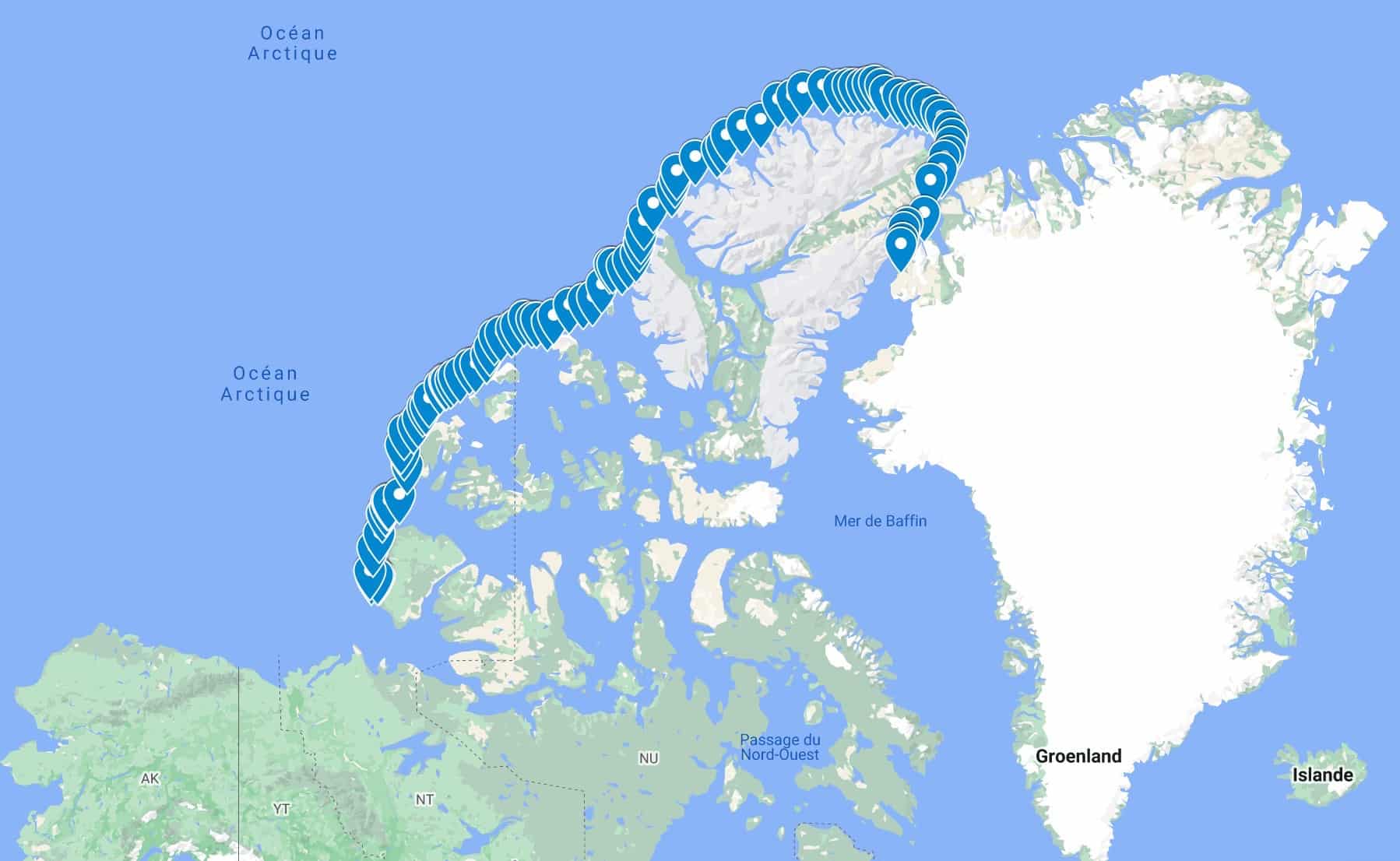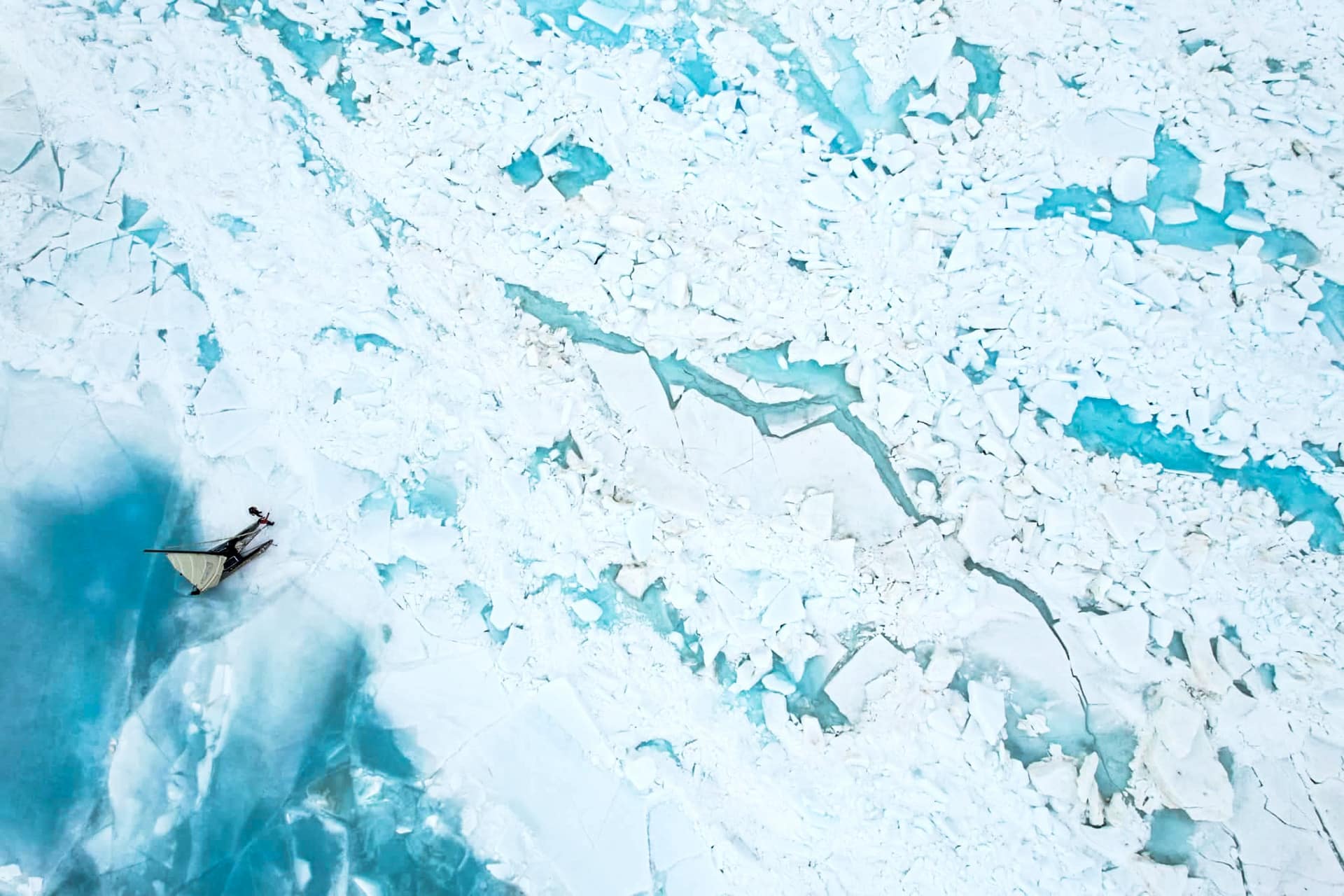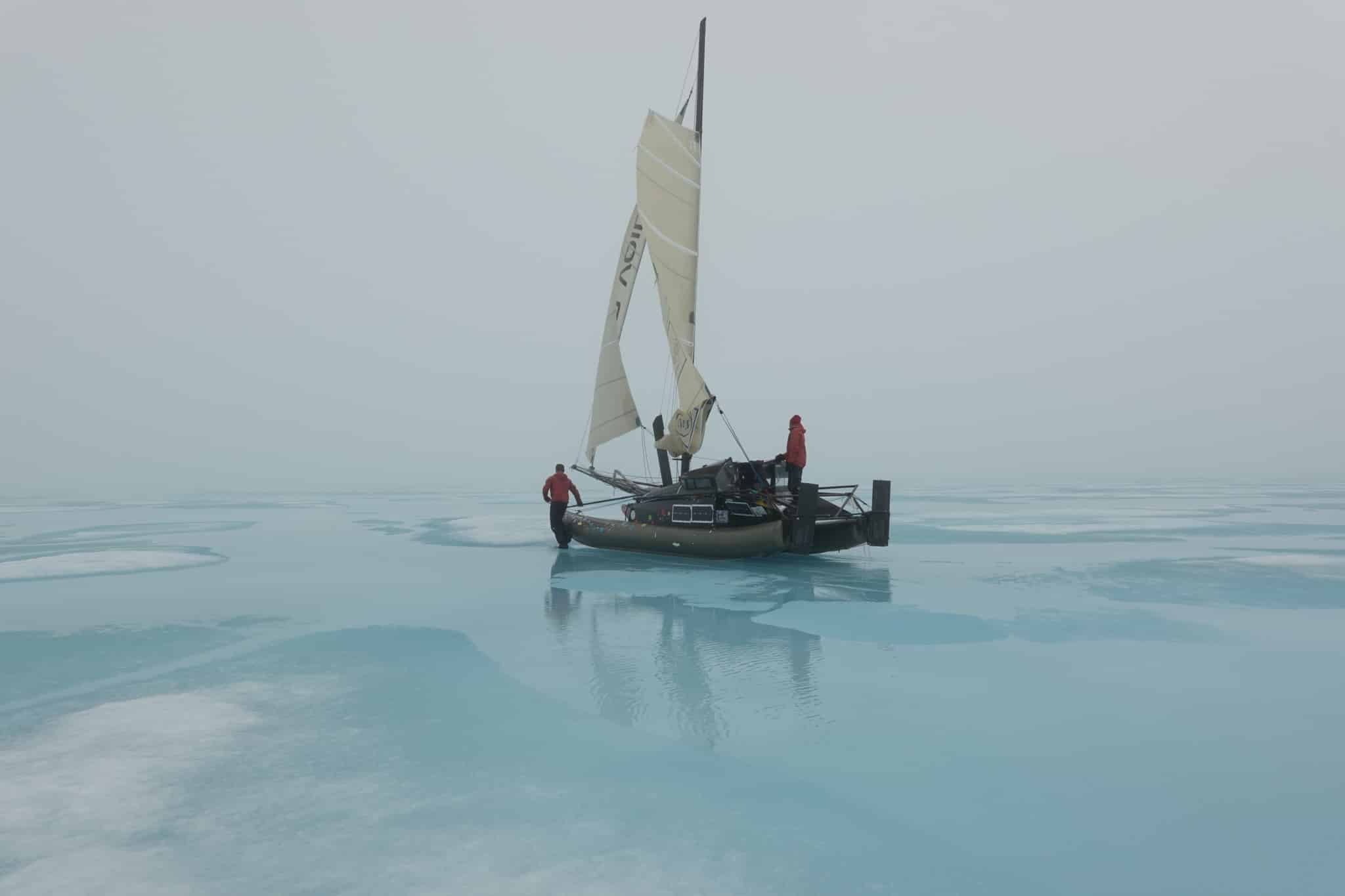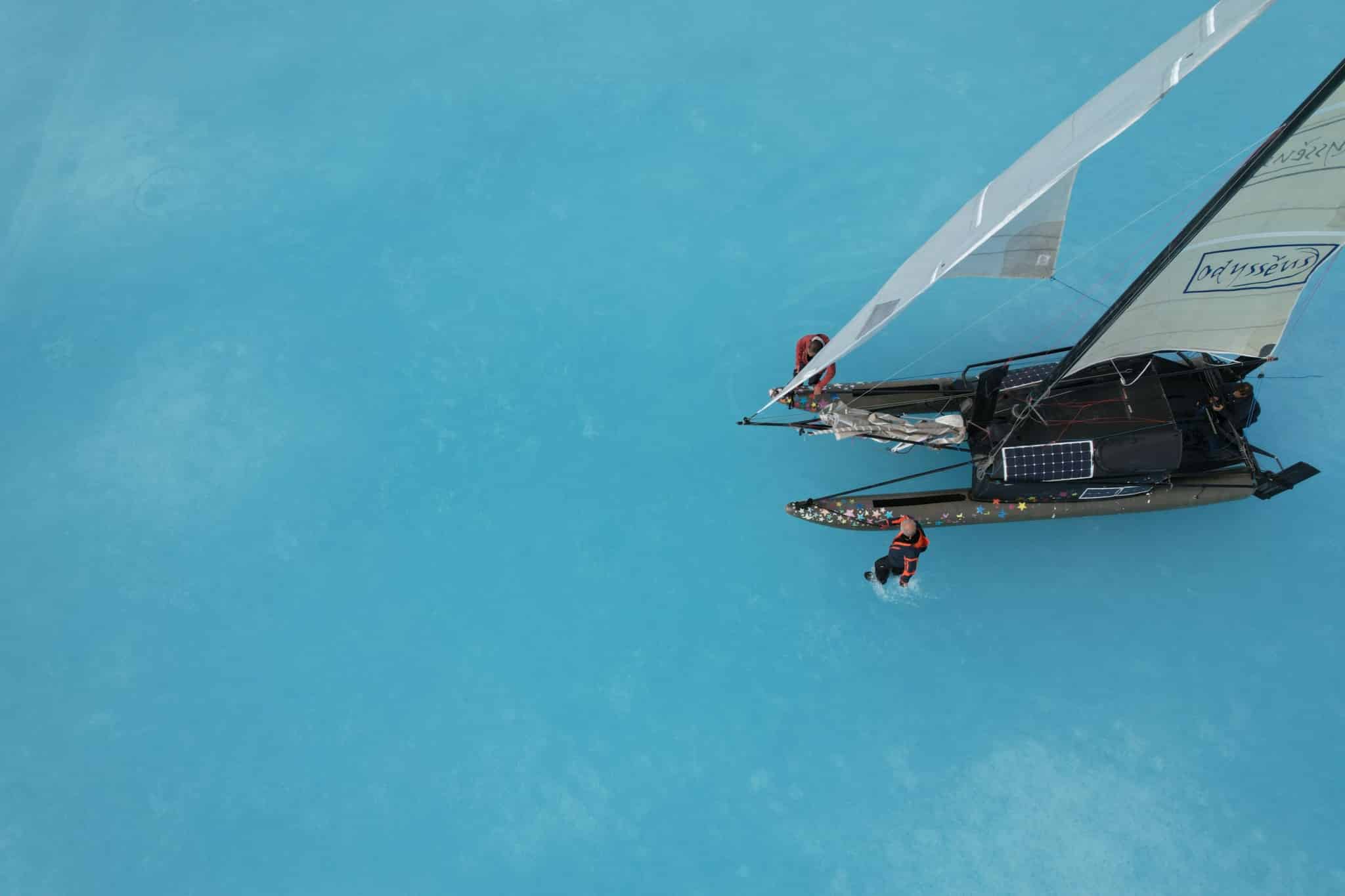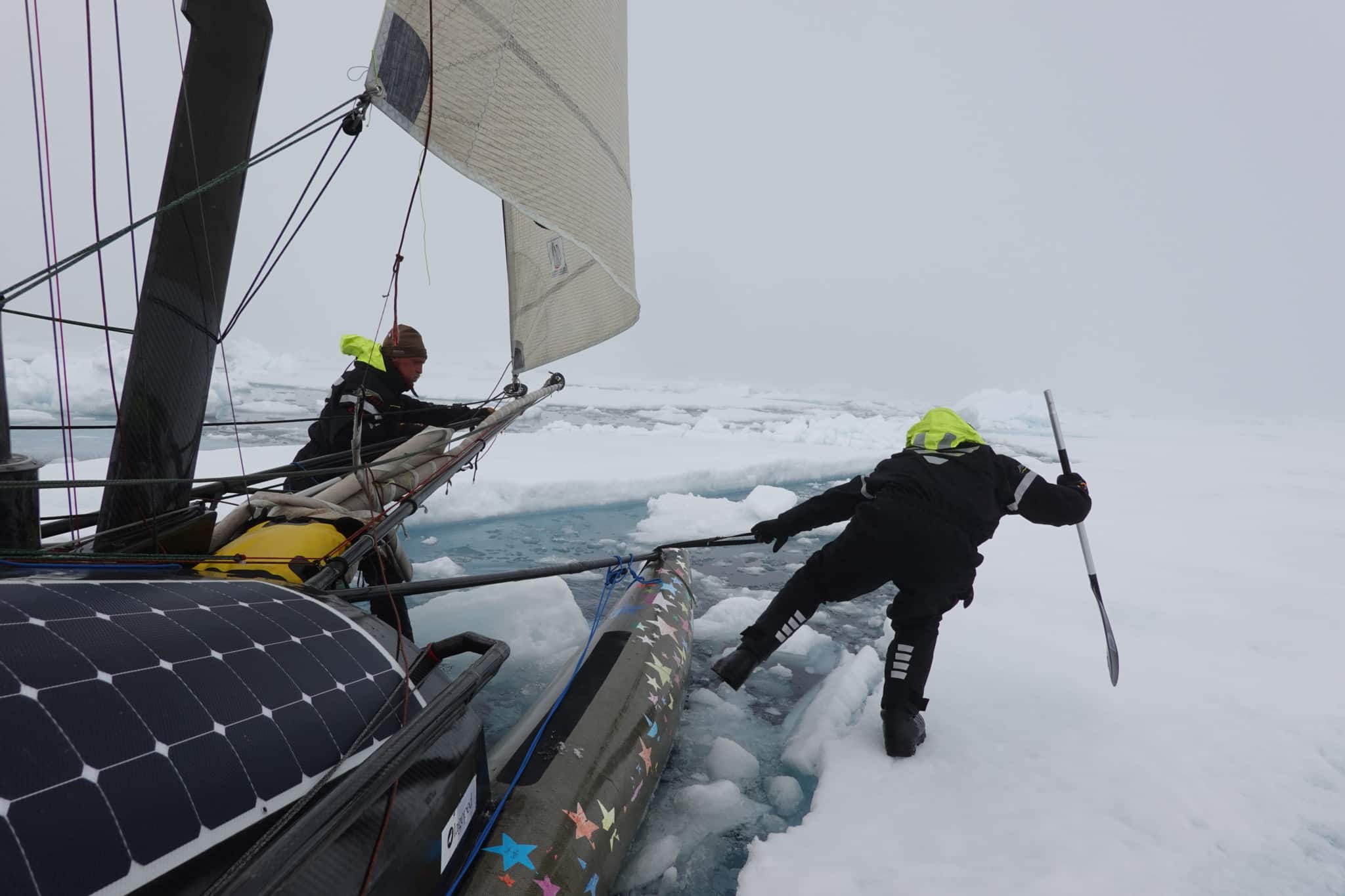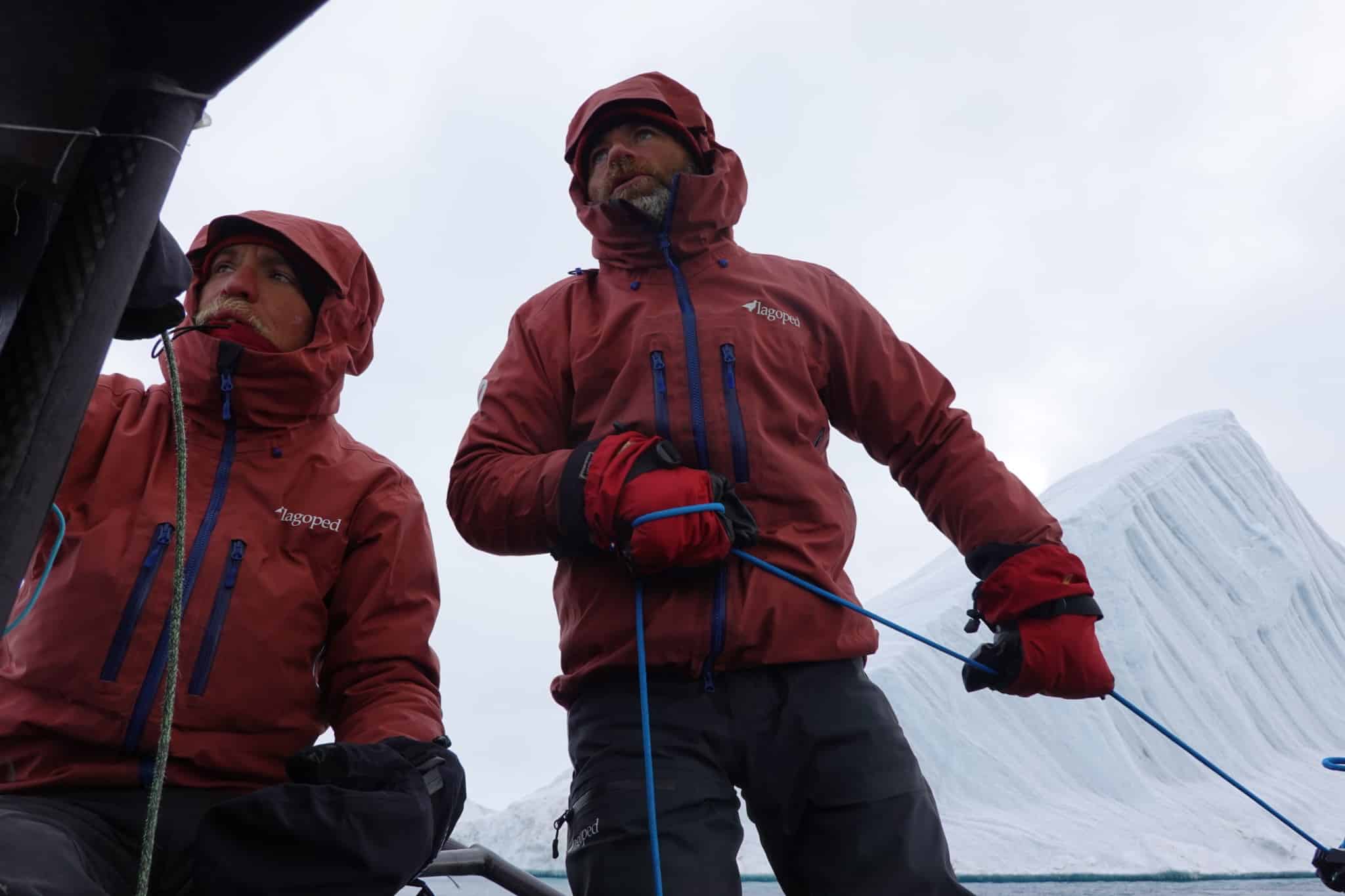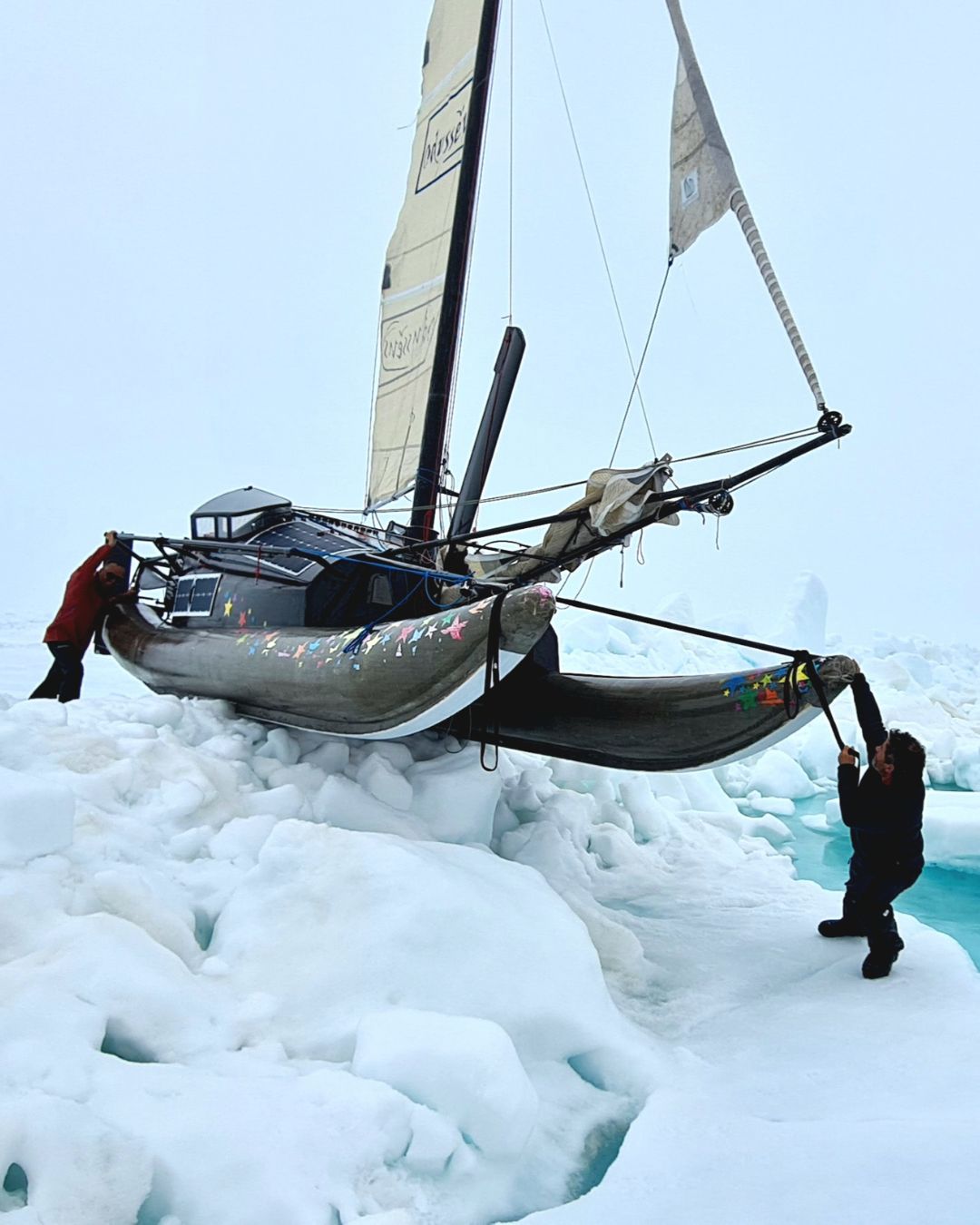Sébastien Roubinet, 2022 winner of the french grant Bourses Expé, sailed along the north of the Canadian Arctic Islands and Greenland to Svalbard (Norway) with his two teammates Jimmy and Eric. From June the 1rst to September the 1rst, 2022, they travelled aboard a small catamaran specially designed and built by Sébastien for this expedition. He tells us about this major adventure, which can be classified as one of the most intense and committed explorations of the moment. With a taste of the great era of polar expeditions.
It is hard to remember and summarise the three months of this formidable expedition, so far from the start it seems, and so many landscapes, animals, feelings, happiness, suffering, fatigue and well-being have passed since the start. Let’s underline that this expedition is a great success and we can say that it is a great first.
Passing north of the 8 northernmost islands of Canada, 7 of which had never seen a boat. And the only men to have approached these lands were a few rare 19th century explorers, often at the cost of their lives. More recently, a few people (scientists, military …..) by plane or helicopter. But one thing is certain, no boat has ever sailed the entire route.
We are also happy to have been able to take eDNA samples during these 3 months, filters loaded with eDNA that we provided to the scientists on our return; we are now eager to know more about the living beings that passed through these places that we could not see because they were too small or too shy…
As for the animals we were lucky enough to see, they were often the most curious. It is so rare to see an Arctic wolf observing us from a hillock 15 meters away from the boat and not feeling any aggressiveness from either side. Or to sail among belugas and bowhead whales that turn around almost all the time to watch us, or to have a visit from a bear just 5 meters from the boat during the evening meal.
two walruses did not like to be woken up in a hurry
and put us through an intimidation parade
Sometimes it was nature that frightened us when, for example, the boat shook too much in the storm and, although properly moored on all sides, we couldn’t help thinking that it would fly away with each stronger gust. Or when the plates driven by the strong currents collided with each other at the level of the boat, forming compression ridges, one had to flee as quickly as possible by pulling the boat on the ice before being crushed… Or when two walruses that did not like to be woken up in a hurry put us through an intimidation parade.
What can we say about this feeling of discovery, so far from what we had imagined ; each cape, each bay or even each metre opened the door to new lands/ice. All along, we had to invent and imagine new techniques of progression: with the hoist and the ice axe when we had to cut passages in blocks of ice, hoisting the boat on the glaciers when the sea of ice was really too hard. We even climbed more at than 100 metres above sea level, went through canyons and abseiled down a glacier. We never imagined that we would do all this before leaving, and maybe it’s a good thing we did, otherwise we wouldn’t have left.
We push, we pull, sometimes with the help of hoists and ice axes.
We row and sometimes even sail.
Every morning, we have to think about the global options based on satellite photos, weather forecasts and the state of the terrain of the previous days… before motivating ourselves to get out of the duvet when we know that we are going to put on cold and frozen clothes and boots as hard as clogs. We try to leave quickly to get warm, we push, we pull, sometimes with the help of hoists and ice axes. We row and sometimes even sail (20/100 of the distance); we stop every 2 hours to have a snack.
The day goes rather quickly and it is generally between 7 and 8 p.m. that we stop; we then secure the boat before finding the warmth of a good meal; it is one of the key moments of the day for the pleasure of eating a real hot meal, always delicious, copious and prepared with good products but moreover well assimilated, which allows us to have the strength to hold on for the following day.
As for the boat, we were delighted with it, it fulfilled its role perfectly; despite its small size we always felt safe inside, it carried 350 kg of food and equipment without flinching and it impressed us in the various terrains normally not really suitable for a boat. We say of it : “often slowed down (given the conditions) but never stuck.” It has suffered: crushed bows, cracked deck, torn hull at the stern, rudders only held together by ropes (but still holding), no more mule life… but it has held together even if it had to be repaired and spared the last few days. Now it will be able to rest under a bed of snow.
Wanting to go further would have been against our marine sense,
dangerous
The men are fine. At the end of the expedition, we had no more fat, only muscle and bones – but no loss of energy.
Eric and Jimmy had some frostbite on their faces and ears at first. My problem was with my feet (due to counterfeit boots and 2500 km of walking on ice or in frozen water), I suffered a lot but I fought to reduce the frostbite and Eric let me have his before it got too bad.
I will never forget these landscapes from the end of the world: Banks and its wildlife, the despairing flat lands of Prince Patrick, Brock, Borden, Ellef Ringnes, Meighen, the mountains of Axel Heiberg, the glaciers of Ellesmere, the Nares Strait and the beauty of Greenland…
The last month was particularly hard because of the very chaotic ice and the half frozen water. Then the gales of the Nares Strait, the snow that no longer melts when it lands on the sea, which is itself freezing, the very violent currents, the plates that collide, the increasingly long nights and all this with a tired boat and almost no food: wanting to go further would have been against our marine sense, dangerous!
We had to let Babouch-ty rest in this little corner of paradise. We will come back…


